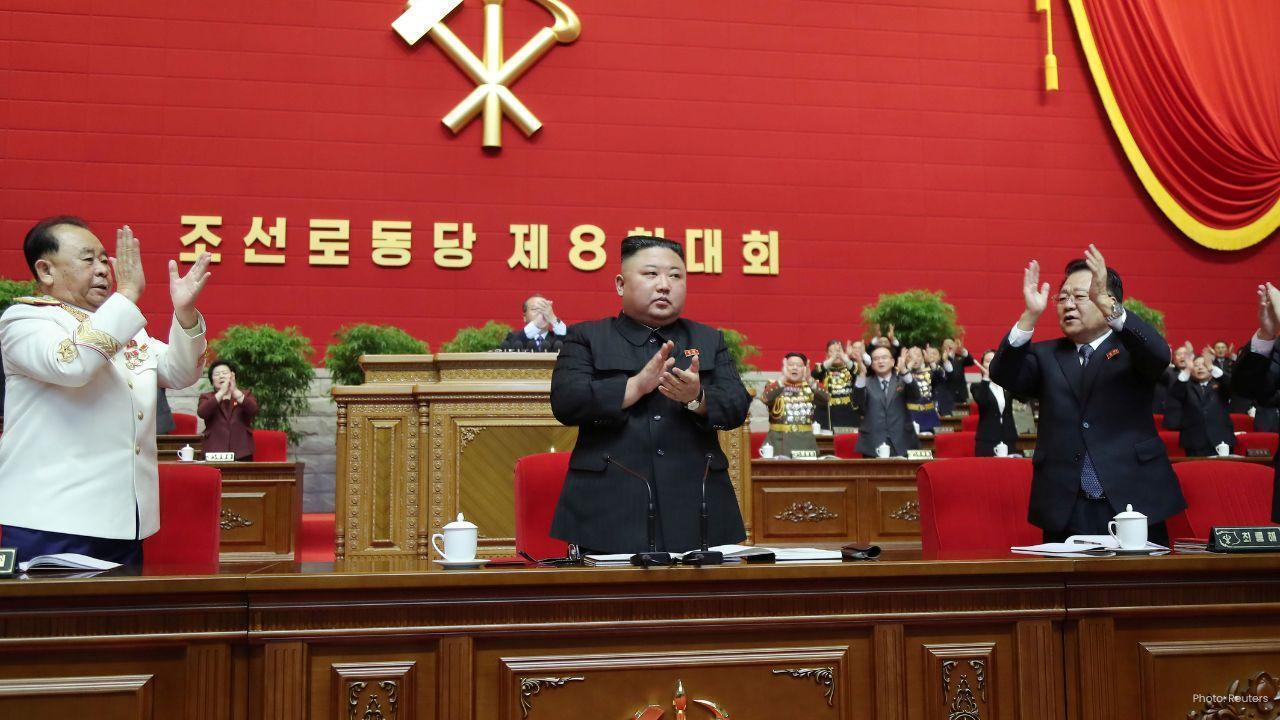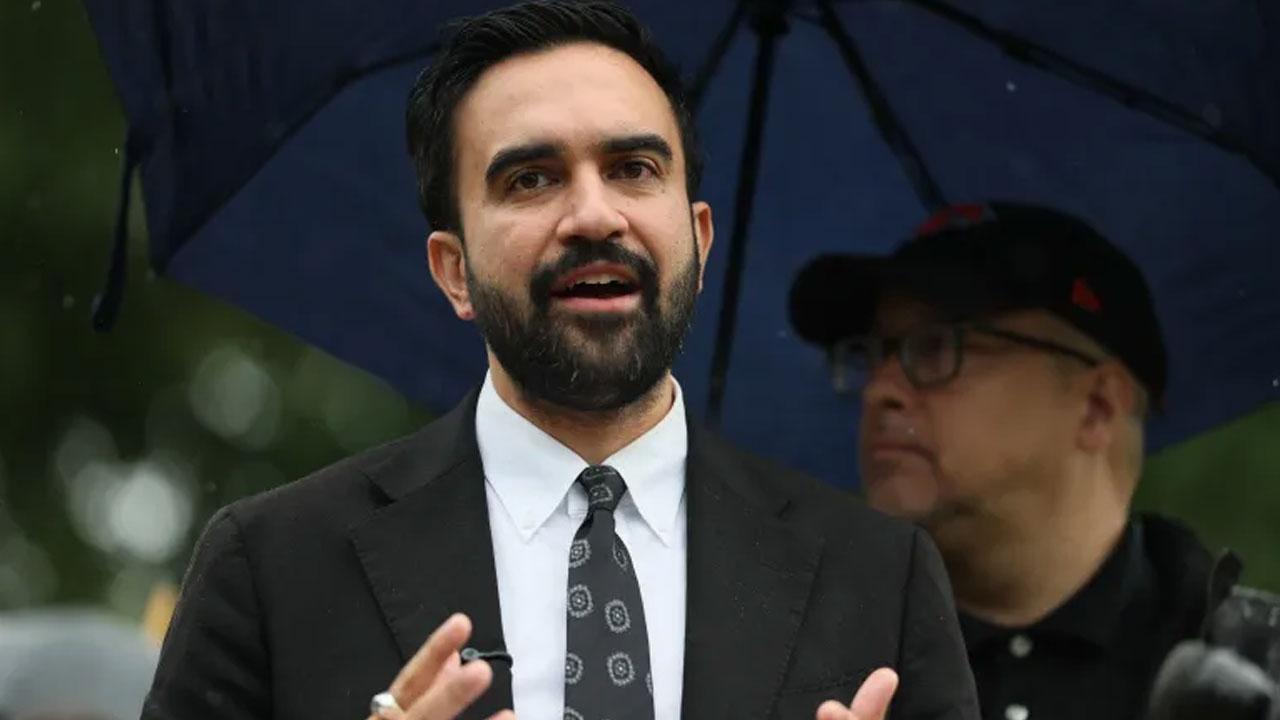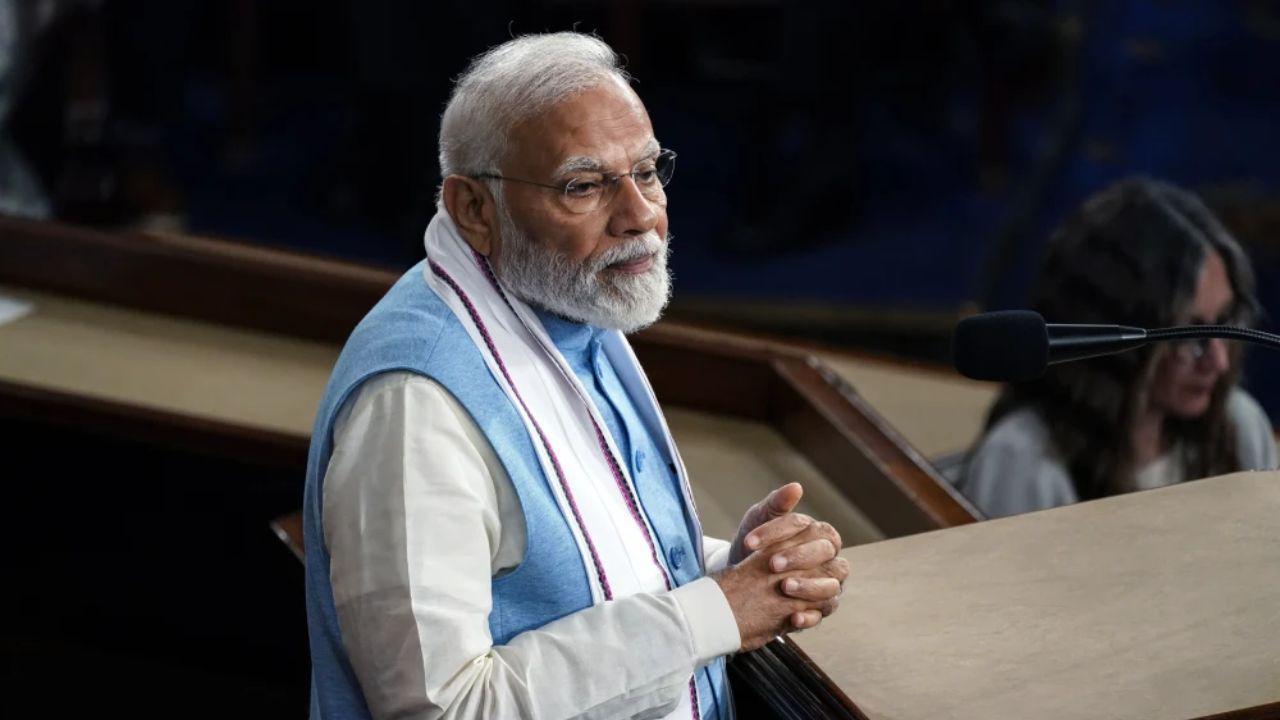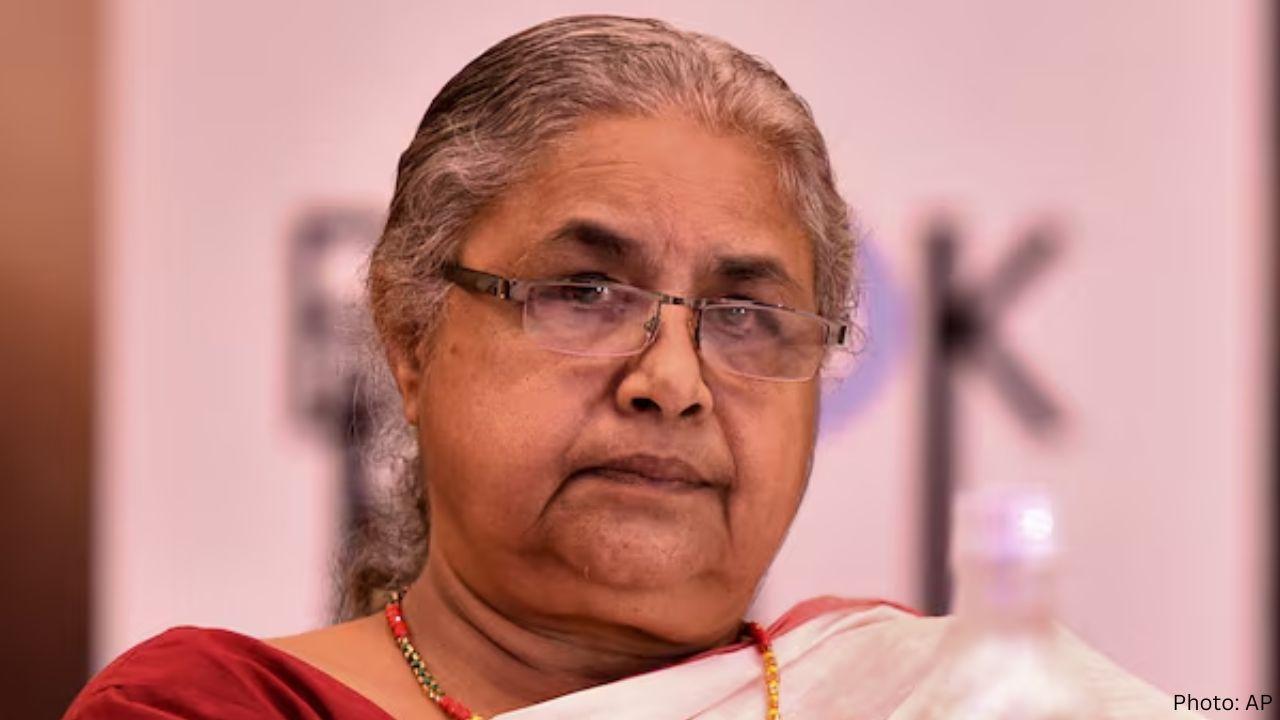
Join 10k+ people to get notified about new posts, news and tips.
Do not worry we don't spam!

Post by : Minna
North Korea’s leader’s sister, Kim Yo Jong, has firmly denied claims that North Korea has removed loudspeakers along the border with South Korea. On Thursday, she made a strong statement, saying, “We have never removed loudspeakers installed in the border area and are not willing to remove them.” Her remarks came after South Korea claimed that some loudspeakers had been dismantled in the North.
Kim Yo Jong is not only the sister of North Korean leader Kim Jong Un but also one of the most influential figures in the country. She repeated North Korea’s longstanding position that Pyongyang has no interest in restarting negotiations or talks with either the United States or South Korea. She emphasized that any hopes of dialogue coming from Seoul are misleading and that the South Korean government is giving false impressions to its people.
Military Drills Raise Concerns
Kim Yo Jong also referred to the upcoming joint military drills scheduled between North and South Korea at the end of August. She described these exercises as evidence of hostility from South Korea toward the North. North Korea has long condemned joint military exercises between the South and the United States, claiming that such drills are essentially preparations for invading North Korean territory.
In the past, North Korea has used these exercises as an opportunity to display military strength and test its weapons programs. This includes demonstrations of its missile capabilities and nuclear programs. The North views these drills as direct threats to its security and sovereignty. Kim Yo Jong’s statement reinforces the North’s position that it will respond firmly to what it sees as provocations from the South.
No Interest in Dialogue with South Korea
Despite repeated assurances from South Korea that it wishes to maintain peaceful relations, Kim Yo Jong maintained a firm and uncompromising stance against any talks. She highlighted that North Korea has made its position clear several times: it does not wish to improve relations with South Korea at this time.
Kim Yo Jong also stated that this position is likely to be formalized in North Korea’s constitution, making the refusal to engage in dialogue a permanent policy. This shows how deeply the North is committed to its current approach and how unlikely it is to be swayed by diplomatic gestures from Seoul or the international community.
South Korea’s Continued Position
On the other hand, South Korea maintains its belief that some loudspeakers along the border have been removed by the North. Last weekend, the South Korean army reported detecting a few dismantled speakers after South Korea itself had removed loudspeakers previously used for K-pop music and news broadcasts. The South said these actions were meant to reduce tensions between the two countries and create a more peaceful environment along the border.
South Korea’s liberal President, Lee Jae Myung, expressed hopes of reopening dialogue and communications with North Korea. However, Kim Yo Jong’s recent remarks show that the North is not interested in such discussions at this time, making the possibility of renewed talks very slim.
No Message to the US Through Russia
Kim Yo Jong also addressed the idea of using Russian President Vladimir Putin as a messenger to communicate with the United States. She dismissed this suggestion, asking, “Why should we send a message to the US side?” This further demonstrates North Korea’s reluctance to engage in any form of international negotiation, not just with South Korea but also with the United States.
Her comments underline that North Korea currently prefers to remain isolated from diplomatic efforts and continues to follow its strict policies and strategies.
The Ongoing Conflict on the Korean Peninsula
The Korean Peninsula remains technically at war, even though active fighting ended decades ago. The Korean War, which began in 1950, concluded in 1953 with an armistice rather than a formal peace treaty. This means that North and South Korea are still technically in a state of war, and the border remains one of the most heavily militarized regions in the world.
This unresolved conflict continues to shape the political and military relations between North and South Korea. Events like the loudspeaker dispute and upcoming military drills highlight how fragile peace efforts remain on the peninsula. Any misunderstanding or action by either side can escalate tensions quickly.
North Korea’s Strategy and Message
Kim Yo Jong’s statements also send a broader message about North Korea’s foreign and domestic policy. By rejecting dialogue and refusing to communicate through intermediaries, the North is signaling that it prioritizes its sovereignty and security above diplomatic engagement. This approach is consistent with North Korea’s historical stance of self-reliance and cautious interaction with other countries.
Her emphasis on formalizing North Korea’s refusal to engage in dialogue in the constitution suggests that the North intends to maintain this hardline position for the foreseeable future. It also reflects the government’s desire to control domestic perceptions, making sure the North Korean public understands that their country will not be easily influenced by foreign pressures.
South Korea’s Diplomatic Challenges
For South Korea, Kim Yo Jong’s statements present a significant diplomatic challenge. While the South aims to reduce tensions through dialogue and cultural exchanges, the North’s rejection of talks limits the effectiveness of these efforts. President Lee Jae Myung’s hopes for renewed communications face significant obstacles, especially when North Korea continues to view South Korean actions, including military exercises, as hostile.
The border loudspeaker issue, though it may seem small, symbolizes the larger political and military tensions between the two nations. Each action along the border is closely monitored and interpreted as a potential signal of aggression or goodwill.
The Importance of Regional Stability
The situation along the Korean Peninsula has wider implications for regional and global stability. North Korea’s decisions affect not only South Korea but also the United States, China, Russia, and other nations involved in maintaining peace in East Asia. The ongoing standoff and refusal to engage in talks mean that any misstep could escalate tensions and create larger security challenges in the region.
Experts suggest that the international community must remain cautious and prepared for sudden developments. The border loudspeaker dispute, upcoming military drills, and North Korea’s hardline stance all serve as reminders of the fragile peace that exists on the Korean Peninsula.
North Korea, under the influence of Kim Yo Jong, has made it clear that it will not remove border loudspeakers and is not interested in restarting dialogue with South Korea or the United States. Military exercises, constitutional policies, and public statements reinforce a strong, uncompromising position. Meanwhile, South Korea continues to seek peaceful engagement but faces significant challenges due to North Korea’s firm stance.
North Korea, Kim Yo Jong, South Korea, border loudspeakers, military drills










Lily Collins Shines in Glamorous Calvin Klein Look at New York Fashion Week
Lily Collins stuns at NY Fashion Week in a sparkling Calvin Klein co-ord set, blending elegance, gla

Lippo Di Carrara wins UAE President’s Cup Derby at Doncaster
Lippo De Carrere shines at Doncaster, winning the UAE President’s Cup UK Arabian Derby, the richest

Jaismine Lamboria Wins World Boxing Gold for India
India’s Jaismine Lamboria claimed World Boxing gold, while Nupur Sheoran earned silver and Pooja Ran

Sri Lanka beat Bangladesh by 6 wickets in Asia Cup 2025 opener
Sri Lanka started their Asia Cup 2025 campaign with a six-wicket win over Bangladesh, powered by Nis

PM Modi Lays ₹6,300 Crore Projects in Assam Criticizes Congress
PM Modi accuses Congress of backing infiltrators, lays ₹6,300 crore health and infrastructure projec

Sushila Karki Becomes Nepal’s First Woman Prime Minister
Eminent jurist Sushila Karki, 73, becomes Nepal’s first woman prime minister after Gen Z protests to